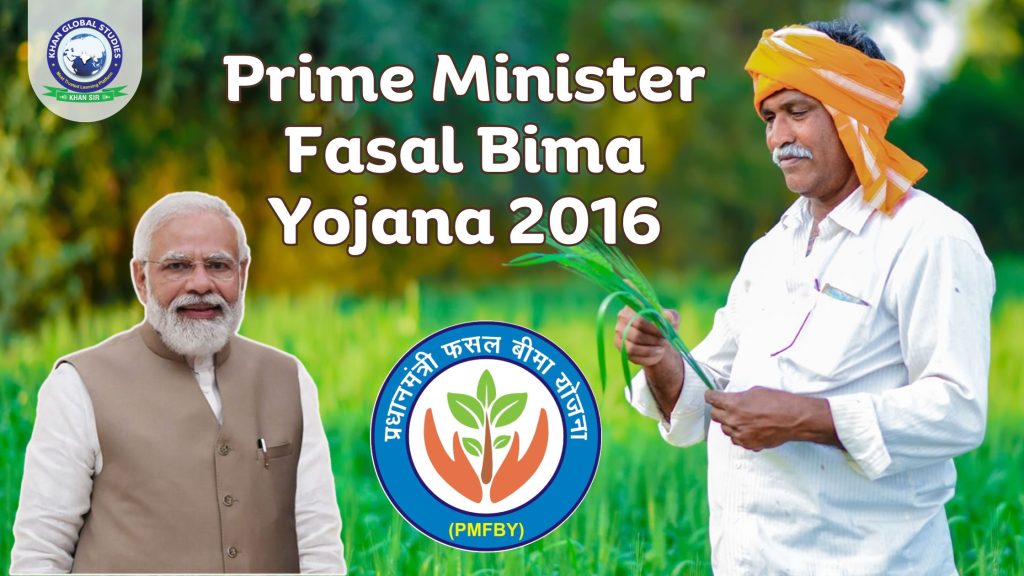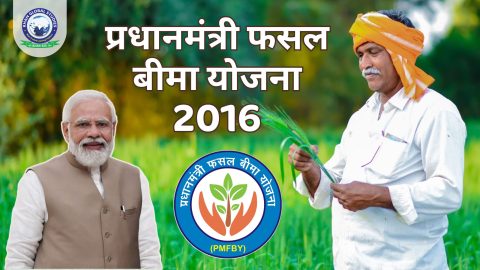Prime Minister Fasal Bima Yojana (PMFBY) is an ambitious scheme of the Government of India aimed at providing financial security to farmers against crop damage caused by natural calamities. Launched in 2016, the scheme has become the largest agricultural insurance scheme in the country.
Benefits of the Scheme
- Comprehensive Coverage: The scheme covers a wide range of crops such as cereals, pulses, oilseeds, and horticultural and commercial crops.
- Affordable Premium: Farmers have to pay a low premium to insure their crops. A major part of the premium is borne by the government.
- Timely Compensation: In case of crop loss, farmers get compensation quickly and easily.
- Easy Claim Process: The claim process has been made simple and transparent so that farmers can get compensation without any hassle.
How does the Scheme Work?
Farmers insure their chosen crop and pay the premium. If the crop is damaged due to a natural calamity such as drought, flood, hailstorm or pest attack, farmers can claim compensation. The insurance company evaluates the claim and compensates the farmers if the claim is found to be correct.
Impact of the scheme
PMFBY has helped millions of farmers recover from crop losses due to natural disasters. The scheme has instilled a sense of security among farmers and encouraged them to continue farming even under risky conditions.
Challenges
- Lack of Awareness: Some farmers are unaware of the scheme or are not motivated to join it.
- Delays in the Claim Process: There may be delays and complications in the claim process.
- Limited Coverage: Not all crops and natural disasters are covered under this scheme.
Future Directions
- Raising Awareness: The government should launch a massive publicity campaign to raise awareness about the scheme so that more and more farmers can avail of it.
- Simplifying the Claim Process: The claim process should be made more simple and timely. The use of technology should be considered to digitise the claim process.
- Expanding Coverage: The scope of the scheme should be broadened to include more crops and natural disasters.
- Resolving Problems: Issues such as improving crop harvest assessment and delays in payments by insurance companies should be addressed.
- Farmer Involvement: Involving farmers in the design and implementation of the scheme can be beneficial. This will help in understanding their needs better and preparing the scheme accordingly.
Resolving Challenges
PM Fasal Bima Yojana is a good initiative, but as we have seen, it has some shortcomings. These challenges can be addressed as follows:
- Lack of Information: Many farmers, especially small and marginal farmers, are not aware of PMFBY or are not motivated to join it. The government should launch awareness campaigns through the Department of Agriculture, Cooperatives and Gram Panchayats. Information material should be prepared in farmers’ languages and the scheme should be promoted through radio programmes and dramas in rural areas.
- Complex Claim Process: The claim process is often considered complex and time-consuming. Crop harvest assessment can be strengthened to make it more effective. Technology can be used to assess crop damage through satellite imagery and drone surveys, which will increase transparency and reduce delays.
- Limited Coverage: At present, not all crops and natural disasters are covered under PMFBY. The scheme needs to be made more comprehensive. The government should keep improving the scheme to include new crops and new types of disasters caused by climate change.
- Ensuring Timely Payments: In some cases, insurance companies delay payments, increasing the financial difficulties of farmers. The Insurance Regulatory and Development Authority of India (IRDAI) should issue strict guidelines for timely payments by insurance companies. Also, a strong grievance redressal system should be established for filing complaints by farmers.
- Farmers’ Participation: Farmers’ participation is important for the success of PMFBY. Farmer organizations and agricultural cooperatives should be involved in the design and implementation of the scheme. This will help in better understanding the needs of farmers and making the scheme more relevant to them.
On the Road to Success
By improving PMFBY and making it more farmer-centric, we can make the Indian agriculture sector more resilient and self-reliant. This will not only help secure the income of farmers but will also play a vital role in achieving the food security goals of the country.
Leveraging Technology
Modern technology can be leveraged to make PMFBY more effective. Here is how technology can strengthen the scheme:
- Satellite Imagery and Drone Surveys: Satellite imagery and drone surveys can be used to bring transparency and accuracy in crop damage assessment. This will reduce delays and manipulations at the ground level.
- Online Platform: An online platform can be developed for farmers to avail crop insurance and file claims. This will make the process simple and accessible. Farmers can avail the scheme using their mobile phones or computers from anywhere.
- Data Analytics: Analysis of agricultural and weather data can help better assess crop risks. This will enable insurance companies to set more accurate premiums and better manage risks.
- Smart Contracts: Blockchain technology can be used to create smart contracts. These automated contracts can ensure immediate payments on verification of crop damage, reduce delays and increase transparency.
Conclusion
The Prime Minister Fasal Bima Yojana is a positive initiative that contributes to strengthening the Indian agriculture sector. By improving this scheme and making it more farmer-centric, we can make the agriculture sector more resilient and self-reliant. This will not only help in increasing the income of farmers but will also play an important role in ensuring food security.





